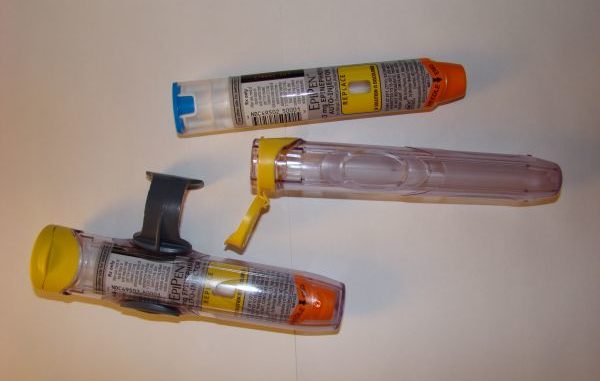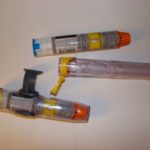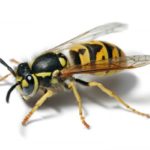
It could mean life or death
As we transition into August and the pre-season, there are numerous tasks that we as outdoorsmen should be busily engaged in. The topic “pre-season priorities” covers everything that needs attention, from right here at home on out to our hunting property.
Before we all sit down with paper and pencil and dive headlong into making our respective lists of what needs to be taken care of before opening day, let me first recount a cautionary tale.
I had something happen to me recently with possible life-saving implications for many of us as we that take to the fields, woods and waters with family and friends.
As a lifelong outdoorsman, I am used to dealing with all sorts of pesky varmints, year in and year out. The cast of characters may change with the season, but there always seems to be something out there that is ready to ruin or otherwise spice up your day.
My list of pests or things to avoid can be divided into two basic classifications. The first covers those pests that are always nuisances and are sometimes destructive. This group includes mosquitos, mice, rats, chiggers and poison ivy. I am certain that you can think of a couple of more to add to the list.
The second classification is more ominous and can sometimes be down-right deadly, as it includes such things as poisonous snakes and the several varieties of wasps and wasp-like insects.
Now it goes without saying that none of us want to blunder into a snakebite situation when we are out in the field, but why have I included wasps and their cousins in this so called “deadly” group?
As it turns out, I am highly allergic to yellow jacket venom, but was unaware of this fact, as I had not been stung by a yellow jacket in many, many years.
Almost a year ago now —in early September of 2011 — I was at my “farm” getting things ready for deer season. I had walked or driven past an annoying pile of old farm junk next to a woods road more times than I care to recall. On this particular occasion I had a helper with me, so I decided that it was high time for the junk pile to disappear.
As we began pulling the partially submerged pieces of junk out of the soil, I suddenly felt a sharp pain on the side of my face, as a swirling cloud of underground-dwelling yellow jackets began to envelope me.
I yelled and ran crashing away through the brush, flailing my arms like a windmill, past my friend — who stood motionless in shock at the sight.
My friend was thankfully not touched, but I wound up with more than a dozen stings. Within less than five minutes, I began to break out in burning, itching hives that progressed rapidly from the soles of my feet to the top of my head.
We were 45 minutes away from medical help, and thank goodness my reaction stopped at hives and did not cross the anaphylactic shock threshold.
What followed was the most miserable, painful hour of my life, as we made the mad dash for emergency medical care.
After treatment I was given a prescription for an epinephrine auto injector or “Epipen,” as they are called, plus a caution from my doctor that my next sting could potentially put me straight into anaphylaxis, which could potentially result in death if not properly treated in time.
Over the remainder of that fall season, as I prepared stands, food plots, trail camera setups and other related tasks, I carried my Epipen in my truck and occasionally on my ATV as I moved about.
Winters cold arrived with the deer season, and I started to become a little complacent about carrying my injector, leaving it at home most of the time. When spring arrived I began carrying it with me again to the farm in my truck, but that is where it often stayed when I would be out and about.
Fast forward to this past April 29, a Saturday, and you would have found me in my backyard at home performing landscape maintenance. As I pulled back some pine straw in a flower bed, I uncovered an entrance hole to a yellow jacket nest.
Before I could even react, I had been hit twice, and I immediately ran into the house to find my wife and get her assistance.
Within less than five minutes, I was going into full blown anaphylactic shock. I felt a crushing weight on my chest as I struggled to breathe; my blood pressure began to drop precipitously, as the resulting lack of oxygen flow to my brain caused me to become confused and unable to think clearly.
In a nutshell, I was slowly dying and could not help myself or tell my wife where I had put my Epipen. I fell to the floor twice, and struggled back to my feet before finally passing out for good and becoming unresponsive.
After my wife ran to call 911, I suddenly opened my eyes and realized that my life-saving injector was in a container a few feet away. I crawled over to the container, found my Epipen and managed somehow, through a mental fog, to jam the life-saving medicine into my thigh.
The epinephrine injection halted my downward spiral for a few precious moments and helped save my life until the EMTs arrived. I am now fully recovered from that brush with possible death.
Having a new found respect for this allergy condition, I now carry two Epipens with me or have them close at hand at all times. Many of you may have this allergy condition and know it, or you are allergic and luckily haven’t yet been stung to learn it. You may have a child that is allergic or have a friend at your deer camp that is allergic.
If you need an Epipen and do not have one, talk to your doctor and get one. This also holds for people who suffer from severe food allergies.
If you need one, by all means carry it with you at all times when you are afield. We are now going into that time of year when an outdoorsman is most likely to encounter wasps and stinging insects, as we clean out deer stands and duck blinds, bush hog fields and woods roads, and disk food plot fields.
If you have an Epipen, let others around you know where it is and show them how to use it. If you or a loved one or a friend needs an Epipen and don’t have one, by all means see a physician and get a prescription for one.
Go on the Web and learn the symptoms for anaphylactic shock. If you or someone you are with is allergic and is stung, grab your Epipen and have it ready for injection if shock symptoms begin — before you do anything else.
Now, with that off my chest, let’s all sit down and think about all of the things that we need to do, buy or check on to be safe and successful this fall and winter.
Regarding trail camera scouting, our existing fleet of trail cameras should be inspected, cleaned and tested, quantities of fresh batteries should be stockpiled, new equipment purchased and checked out, and our perennial or favorite camera locations should be trimmed and readied for action.
Let’s make our lists and get busy.




